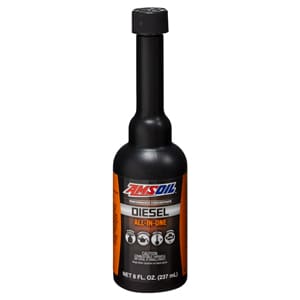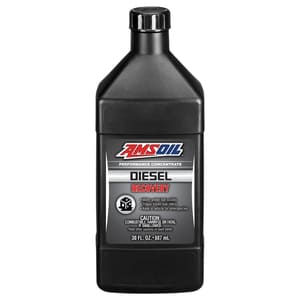If you are a diesel fuel user, you are likely all too familiar with the frustrating and potentially damaging problem of gelling. When temperatures drop, diesel fuel can form gel-like crystals that clog fuel filters and make starting your vehicle a nightmare. But fear not, because in this article, we will reveal the best diesel fuel anti-gel products that can help you prevent this issue and keep your diesel engine running smoothly all year round.
Whether you are an owner-operator, truck fleet manager, or simply a diesel vehicle enthusiast, understanding how to combat gelling is essential. We will explore the most effective anti-gel solutions on the market, from fuel additives to specialized winterized diesel fuels. By taking preventive measures, you can avoid costly repairs and downtime caused by gelled fuel.
So, if you want to ensure hassle-free starts and an uninterrupted fuel flow in your diesel engine, keep reading as we unveil the tried and tested solutions that will keep gelling at bay.
Understanding diesel fuel gelling
Diesel fuel gelling occurs when the paraffin wax present in the fuel solidifies in low temperatures. This wax, which is liquid at higher temperatures, turns into a gel-like substance when exposed to cold conditions. The gelled fuel can obstruct the fuel filters, reducing or completely blocking the flow of fuel. In severe cases, it can even prevent the engine from starting altogether.
To understand why gelling happens, it’s important to know that diesel fuel is composed of a mixture of hydrocarbons, including paraffins, which are the main culprit behind gelling. When the temperature drops, the paraffins start to crystallize, forming clusters that can clog the fuel system.

The consequences of diesel fuel gelling
The consequences of diesel fuel gelling can be significant, both in terms of vehicle performance and financial implications. When gelled fuel obstructs the fuel filters, it restricts the flow of fuel to the engine, leading to reduced power and efficiency. In extreme cases, the engine may not start at all, leaving you stranded in freezing temperatures.
Apart from the inconvenience, gelling can also cause costly damage to your vehicle. The increased pressure on the fuel system due to blocked filters can lead to fuel pump failure, injector damage, and other related issues. Repairing these components can be expensive and time-consuming, resulting in unnecessary downtime for your vehicle or fleet.
Common causes of diesel fuel gelling
Understanding the common causes of diesel fuel gelling can help you take proactive steps to prevent it. Here are a few factors that contribute to gelling:
1. Low temperatures: The primary cause of gelling is exposure to low temperatures. Diesel fuel typically starts to gel when the temperature drops below its cloud point. The cloud point is the temperature at which the first wax crystals begin to form. As the temperature continues to decrease, the fuel’s pour point is reached, and the gel becomes solid, obstructing the fuel system.
2. Poor fuel quality: The quality of the diesel fuel you use can also influence gelling. Low-quality fuel may contain higher levels of contaminants and impurities, including water and sediment. These impurities can accelerate the formation of wax crystals and increase the likelihood of gelling, especially in colder temperatures.
3. Lack of fuel maintenance: Neglecting proper fuel maintenance practices can contribute to gelling. Contaminated fuel tanks, inadequate fuel filtration, and infrequent fuel system inspections can all lead to gelling issues. Regularly checking and cleaning the fuel system can help prevent the accumulation of contaminants and minimize the risk of gelling.
Now that we understand the causes and consequences of diesel fuel gelling, let’s explore the various methods and products you can use to prevent this problem and keep your diesel engine running smoothly.

How to prevent diesel fuel gelling
Preventing diesel fuel gelling requires a proactive approach, especially during colder months or when operating in frigid climates. Here are some effective strategies to prevent gelling:
1. Use winterized diesel fuel: Winterized diesel fuel is specially formulated to withstand low temperatures without gelling. It contains additives that lower the cloud point and pour point of the fuel, allowing it to remain in a liquid state even in freezing conditions. Using winterized diesel fuel is an excellent preventive measure, particularly if you frequently operate in extremely cold environments.
2. Add anti-gel fuel additives: Fuel additives are an effective way to improve the cold-weather performance of diesel fuel. Anti-gel additives contain chemicals that modify the wax crystal formation, preventing them from clustering and clogging the fuel system. These additives can lower the pour point and cloud point of the fuel, providing protection against gelling. It’s important to choose additives specifically designed for diesel fuel and follow the manufacturer’s instructions for optimal results.
3. Consider fuel tank heaters: Fuel tank heaters are heating devices that keep the fuel at a consistent temperature, preventing gelling. These heaters can be installed in the fuel tank or fuel lines and are particularly useful for vehicles that are frequently parked or operated in extremely cold temperatures. Fuel tank heaters come in various types, including electric heaters, coolant-based heaters, and fuel line heaters.
By implementing these preventive measures, you can significantly reduce the risk of diesel fuel gelling and ensure smooth operation of your diesel engine, even in the harshest winter conditions.
Best diesel anti-gel products on the market
When it comes to choosing the right anti-gel product for your diesel fuel, the market offers a wide range of options. Here are some of the top anti-gel products that have proven to be effective in preventing diesel fuel gelling:
1. AMSOIL Diesel All-In-One Fuel Conditioner: This multi-purpose product not only prevents gelling but also cleans injectors, lubricates fuel pumps, and improves fuel economy.

2. AMSOIL Diesel Cold Flow Improver: Designed for extreme cold temperatures, this product prevents wax crystal formation and keeps fuel flowing smoothly.

3. AMSOIL Diesel Recovery: Thaws frozen fuel filters and liquefies gelled diesel fuel to get diesels back on the road without towing.

Remember to carefully assess your specific needs and consult with professionals or trusted sources before selecting an anti-gel product. Factors such as the average temperature range in your area, vehicle usage, and fuel quality should all be taken into consideration.
Factors to consider when choosing an anti-gel product
When choosing an anti-gel product for your diesel fuel, it’s essential to consider several factors to ensure optimal performance and compatibility. Here are some key factors to keep in mind:
1. Temperature range: Different anti-gel products are designed to perform optimally within specific temperature ranges. Consider the average lowest temperatures you expect to encounter and choose a product that offers protection well below those temperatures.
2. Fuel type: Some anti-gel products are specifically formulated for certain types of diesel fuel. Ensure that the product you choose is compatible with the fuel you use. Using an incompatible product can lead to reduced effectiveness or even damage to the fuel system.
3. Additive concentration: Anti-gel fuel additives are typically added in specific concentrations, as recommended by the manufacturer. Overdosing or underdosing the additive can affect its performance and may lead to other issues. Follow the manufacturer’s instructions carefully to achieve the desired results.
4. Brand reputation: Opt for anti-gel products from reputable brands that have a track record of producing high-quality, reliable products. Research customer reviews and consult with experts to gauge the effectiveness and reliability of the product.
By considering these factors, you can choose an anti-gel product that is best suited for your specific needs and ensures maximum protection against gelling.

Tips for using anti-gel products effectively
To maximize the effectiveness of anti-gel products and prevent diesel fuel gelling, follow these tips:
1. Follow the recommended dosage: Use the recommended dosage of the anti-gel product as specified by the manufacturer. Overdosing or underdosing can compromise the product’s effectiveness and potentially damage the fuel system.
2. Store fuel in a temperature-controlled environment: If possible, store your diesel fuel in a temperature-controlled environment to minimize exposure to extreme cold temperatures. This can help prevent gelling and ensure the fuel remains in a usable state.
3. Regularly inspect and clean fuel filters: Even with the use of anti-gel products, it’s essential to regularly inspect and clean the fuel filters. Over time, wax crystals and other contaminants can accumulate in the filters, reducing fuel flow. Regular maintenance will help prevent clogging and ensure uninterrupted fuel supply.
4. Monitor fuel quality: Regularly monitor the quality of your diesel fuel, especially during colder months. Ensure that the fuel is free from water and sediment, as these impurities can contribute to gelling. If necessary, consider using fuel additives that also provide water separation and cleaning properties.
By following these tips, you can enhance the effectiveness of anti-gel products and maintain optimal diesel performance throughout the year.

DIY solutions for preventing diesel fuel gelling
In addition to commercially available anti-gel products, there are a few DIY solutions you can try to prevent diesel fuel gelling:
1. Insulate fuel lines: Insulating fuel lines with heat-resistant materials can help retain the heat generated by the engine and prevent fuel from cooling rapidly. This can provide some protection against gelling, especially during short stops or idling periods.
2. Park in a garage or shelter: Whenever possible, park your diesel vehicle in a garage or shelter to shield it from extreme cold temperatures. This can help maintain the fuel’s temperature and prevent gelling.
3. Keep fuel tank topped up: Keeping your fuel tank as full as possible can minimize the amount of air space and condensation inside the tank. This reduces the risk of water contamination, which can accelerate gelling.
While these DIY solutions can offer some level of protection, they may not be as reliable as commercially available anti-gel products. It’s always advisable to use a combination of preventive measures, including proper fuel management and the use of trusted anti-gel products, for optimal results.
Conclusion: Ensuring smooth diesel performance
In conclusion, preventing gelling in diesel fuel is crucial for maintaining smooth diesel engine performance, especially during cold weather or in frigid climates. Understanding the causes and consequences of gelling, as well as implementing preventive measures, can save you from costly repairs and downtime.
By using winterized diesel fuel, adding anti-gel fuel additives, considering fuel tank heaters, and following the tips mentioned in this article, you can significantly reduce the risk of gelling and ensure hassle-free starts and uninterrupted fuel flow in your diesel engine.
Remember to carefully choose anti-gel products based on factors such as temperature range, fuel type, and additive concentration. Opt for a reputable brand such as AMSOIL with a proven track record. Regularly monitor fuel quality and maintain proper fuel system maintenance to prevent gelling-related issues.
AMSOIL offers a range of high-quality products specifically formulated to prevent fuel gelling and improve overall fuel efficiency. Whether you’re a truck owner, fleet manager, or simply someone who relies on diesel fuel, their solutions are worth considering.
With the best AMSOIL diesel anti-gel products at your disposal and the knowledge of how to use them effectively, you can confidently tackle the challenge of diesel fuel gelling and keep your diesel engine running smoothly all year round. Stay proactive, stay prepared, and enjoy reliable diesel performance in any weather condition.
